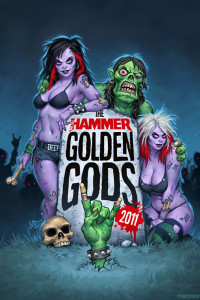Zombies are strange characters.
Their current popularity is a bit of a mystery to me. I guess I’m one of the few who doesn’t “get” the attraction of the re-animated corpse. As an artist they are problematic as well. Drawing or painting an ambulatory mangled corpse is not an assignment that I truly relish. Watching a disintegrating cadaver moving around is not really my cup of tea.
Nevertheless they are popular — VERY popular. So my question is; why?
Let’s back up a bit. Here is what Wikipedia has to say about the traditional folklore zombie:
A zombie (Haitian Creole: zonbi; North Mbundu: nzumbe) is an animated corpse resurrected by mystical means, such as witchcraft.[1] The term is often figuratively applied to describe a hypnotized person bereft of consciousness and self-awareness, yet ambulant and able to respond to surrounding stimuli. Since the late 19th century, zombies have acquired notable popularity, especially in North American and European folklore.

But the current iteration of the zombie began, many argue, with the film The Night of the Living dead, a low-budget horror film made by George A. Romero back in 1968. In that film the current image of a zombie is recognizable as a shambling, re-animated corpse that hungers for human flesh and can only be put down with a bullet to the head.
The concept of the dead rising has been extrapolated to its absurd conclusion with the development of the concept of the Zombie Apocalypse, the complete and utter breakdown of society under the onslaught of the rising dead. This concept has seen its latest incarnation in the newly released film World War Z (The Z standing, of course, for zombie).
So what is the attraction of the zombie? It’s certainly not the clothes. Zombies are not known for their sartorial splendor. Nor do they possess matinee idol good looks. Quite the opposite. (Although there is a subset of illustration that tries to make zombies “sexy”, which is the ultimate juxtaposition, I suppose, of sex and death. Or, perhaps, it is the ultimate subversion of the concept of objectifying women.

At the end of the day zombies are inarticulate and unglamorous. The only thing they seem to have on their side is numbers.
From an illustration standpoint, zombies range from the realistically depicted and unsettling as in the work of David Palumbo to the cartoonish as evidenced in the work of UK artist Matt Dixon, and all stops in between.

Of course where the art of the zombie thrives is in the area of special effects make-up. Professionals need to turn people into zombies for film and television. The HBO series The Walking Dead employs talented craftspeople who create amazing armies of frightening undead using latex, animatronics, puppetry and other visual sleight of hand. But it`s not just the professionals. Amateurs take to transforming themselves and others into zombies with particular gusto. Many cities boast `zombie walks`where these amateur make-up artists display their work and zombie enthusiasts get to live out their fantasy of being a zombie (which is something that baffles me completely).
I have tried my hand at depicting the undead. My efforts have ranged from the cartoonish to the semi-realistic, and to be sure, there are a number of challenges to bringing life to what is essentially a lifeless figure.
So, weigh in. What is the appeal of the zombie? Is it the fact that it is the ultimate nihilist? As a zombie you don’t have to care about anything — social status, looks, hygiene — except eating brains?
What is the appeal of the zombie?
M. D. Jackson has been drawing since he could first hold a pencil. He has been writing for so long that he has, in fact, developed an alternate personality named Jack to handle the fiction.
His work has appeared in numerous magazines and on the front covers of many books as well as in the pages of Amazing Stories Magazine. You can also see a lot of it at his gallery.











I think there’s a mix. The Apocalyptic Seduction: There’s an appeal to a world where your problems are simple. Need food, raid a grocers, need medicine, bust open a pharmacy. No taxes, no traffic, no workplace anxiety. Just the odd shambling dead you brain with your cricket bat. Simple, direct problems solved by simple, direct solutions. And ANYBODY can be Billy Bad Ass fighting zombies. Juvenile Tough Guy Fantasy: fulfilled.
Now, for the dead… Zombies hit a particular set of Horror Buttons. They represent a claustrophobic, creeping doom. Horror, growing dread instead of pouncing, quick terror. Add the “10 Little Indians,” vibe, and the tension ratchets up. When I was a teen, instead of “Hide and Seek,” we’d play “Zombie.” Old farm spread, at night. One person is it. They count, everyone runs and hides, the “Zombie” shambles after them. It’s easy, and fun… until he corners someone. We had to grab them, and wrestle them down. Then… you’ve got two people who are “It.” And they’d shamble around, sniffing out survivors… until there’s one poor, sad, terrified bastard up on top of the chicken coop while the shambling crowd surrounds him… It was only a game, you knew it was just fun… but when you were that one last person, you got the wiggins in a serious way. That creeping dread hits a special chord in us. Maybe because we’re social primates at heart, and seeing the rest of our band or troupe turn against us, turn into something *wrong* and hunt us, jabs that old back-brain monkey right where it lives.